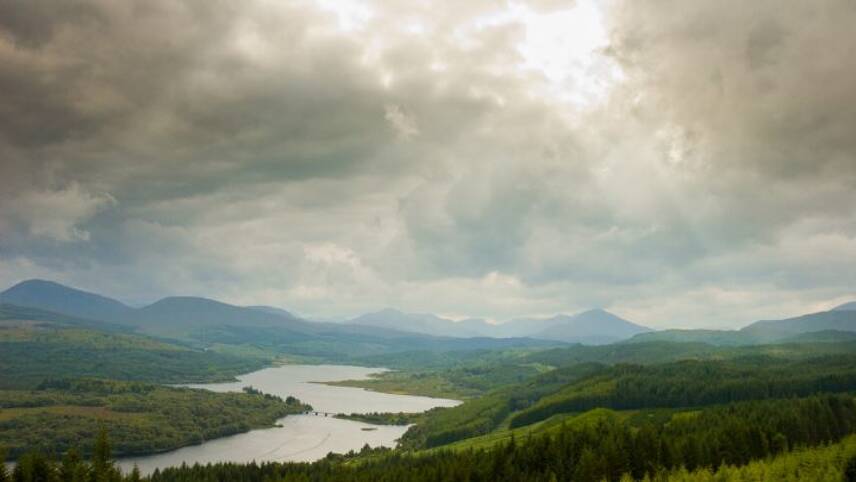Register for free and continue reading
Join our growing army of changemakers and get unlimited access to our premium content

Francesca Osowska warned of abandoned rural areas
Francesca Osowska, chief executive of Scottish Natural Heritage, said the world had barely a decade to shift to a low carbon economy before the effects of global heating were irreversible and catastrophic. She said there were very clear threats facing Scotland, and by implication the rest of the UK, unless radical action was taken by 2030.
“Imagine an apocalypse – polluted waters; drained and eroding peatlands; coastal towns and villages deserted in the wake of rising sea level and coastal erosion; massive areas of forestry afflicted by disease; a dearth of people in rural areas; and no birdsong,” she told the Royal Society of Edinburgh on Thursday evening.
“All of this is possible, and there are parts of the world we can point to where inaction has given rise to one or more of these nightmare landscapes.”
Osowska said current levels of greenhouse gases in the atmosphere meant global heating of 1.5C was almost inevitable, requiring adaptation in the way people lived.
To prevent even more heating, there had to be sweeping changes to the way land and seas were exploited for food, towards much more sustainable food production; a marked shift towards sustainable transport systems; increased green spaces in urban areas; and significant reform of the economy, to promote greater equality.
Likening the relationship between the Earth’s climate and its biodiversity to marriage, she said there had been major shifts in climate and nature before. “But the rate of the current shift is both unprecedented and phenomenal,” she said.
“In the space of geological seconds – possibly milliseconds – we have crashed the marriage. Our actions threaten to disrupt the harmony that has existed over the last 10,000-15,000 years. We are entering a climate which may not be capable of sustaining the planet’s billions of people and nature as we know it.”
She cited goals set out in a recent report from the Committee on Climate Change (CCC), a government body that advises the UK and devolved governments on climate policy, which has called on the UK to adopt a target of net zero emissions by 2050. The UK government has so far failed to endorse that.
That required converting 20% of agricultural land to forestry, biomass for energy, or expanding carbon-rich peatlands; a switch to electrically powered transport; increasing renewable energy production by 50%; and heavy investment in carbon capture and storage, to pipe the CO2 still being produced underground.
The CCC said Scotland could achieve net zero – a figure that allows some CO2 emissions as long as that carbon is absorbed by other measures – by 2045 because it has greater scope for new forestry and renewable energy production.
Nicola Sturgeon, Scotland’s first minister, has adopted that goal but her government has yet to set out how it will be achieved. MSPs at Holyrood are resisting proposals for mandatory 20mph zones in urban areas and taxing workplace parking to help cut transport emissions.
Severin Carrell
This article first appeared on the Guardian
edie is part of the Guardian Environment Network


Apart from the fact that Scotland is still rebounding after the last ice age so we experience Sea Level drop around the country, most clearly seen as raised beaches at many locations so one has to ask where all the coastal flooding is going to come from.